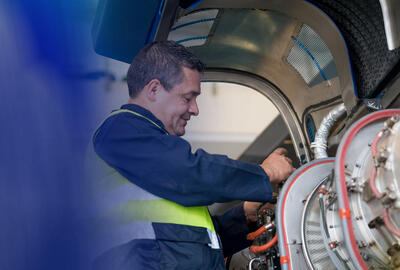<p>Risk and safety engineers perform a vital role for a wide variety of companies, and the demand is unlikely to wane in the near future. The role requires a high level of personal responsibility as well as specific knowledge of the environment in which you work.</p>
<h3>Risk and safety engineering jobs - salary expectations.</h3>
<p>Most risk and safety engineers will start their career with a relevant degree, for example in a discipline of engineering or management, and a degree level entrant could expect to attract a starting salary of around £25,000 to £30,000. With a few years’ experience and after undertaking a relevant post-graduate qualification, a salary of £40,000 plus could be achieved.</p>
<p>Senior chartered risk engineers with a specialism in, say, chemical engineering, could expect to command salaries of between £45,000 and £80,000 for exceptional and experienced candidates, and even higher for those who move into the most senior management roles within the sector.</p>
<h3>Top locations to optimise your risk and safety engineering salary.</h3>
<p>Risk and safety engineers’ jobs can be found across a wide variety of industries and, as such, there is little local variance in demand across the UK. The exception to this is likely to be in the demand for oil and gas risk and safety specialists, where roles will be more likely to centre on the energy producing hubs of Scotland and the East of England, sometimes offshore, although these employers also have roles across the country. Risk and safety engineers who have around five years or more of relevant experience, are often in demand overseas too, for example in the United Arab Emirates.</p>
<h3>Ways to boost your risk and safety engineering salary.</h3>
<p>In most industries, risk and safety engineers can undertake specific qualifications that are likely to enhance their employability and future salaries, as well as allowing them to gain accredited status as a member of a professional body. Safety engineers within the oil and gas sectors, for example, can take an MSc in Safety & Reliability for Oil and Gas, whilst an MSc in Safety, Risk and Reliability Engineering might appeal to those in any type of industry. In many cases these qualifications can be gained whilst also working.</p>
<p>Senior and experienced risk and safety engineers can also consider the benefits of working on a freelance basis, which often commands an increased daily rate. In-demand engineers might achieve £500 plus a day on a consultancy basis. Freelance roles, however, should not be taken simply for the money. The life of a contractor does not suit all workers, with its inherent lack of predictability and the need for the engineer to spend a considerable amount of time sourcing the next role.</p>
<p>Looking overseas for roles can be rewarding financially, and can also enhance a career at the same time, although job seekers should always check the tax and legal situation around overseas roles before committing.</p>
read more about careers in engineering.
see all articles-
 23 June 2023
23 June 2023highest paid engineering jobs.
-
14 October 2022
what does a civil engineer do?
-
 12 September 2022
12 September 2022Job interview tips: How to prepare
-
 20 January 2021
20 January 2021HS2 seeks STEM women returners to work.
-
 01 January 2021
01 January 2021CSCS cards lose grandfather rights.
-
 25 February 2020
25 February 2020my career in construction: interview with angela carney.